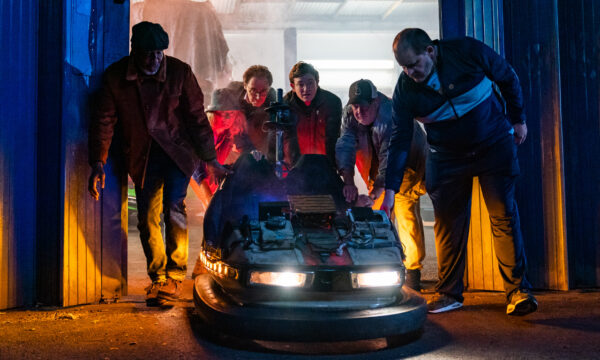Belfast

Kenneth Branagh’s new feature, Belfast, is inspired by the director’s own childhood in Northern Ireland, of which he offers an unapologetically romanticised version. The story begins in 1969 with a gloomy political environment in the background and conflicts regularly disrupting the peace.
Buddy (Jude Hill) is a nine-year-old boy who spends his afternoons playing in the streets with the children of the neighbourhood. One day a violent anti-Catholic riot breaks out right on his doorstep. Buddy’s Protestant family, like many others, live peacefully side-by-side with Catholic families, but sectarian parties are trying to change this by inciting hatred. Local thugs try to coerce Buddy’s father (Jamie Dornan) into siding with them. Meanwhile, the mounting debts at home begin to stifle them and to exasperate Buddy’s mother (Caitríona Balfe), who must run the household alone since her husband is often away for work. The family must decide whether to flee and improve their lives away from Belfast, or stay loyal to their homeland but be crushed by its problems.
The film is shot entirely in black-and-white, with the exception of a theatre play and the movies that the family go to see. These are shown in vivid colour to emphasise the idea that a new world opens up to Buddy through the arts. While Branagh’s look at his childhood is glamorised and he indulges in the dreamy vision he creates, an excellent cast ensures that the rose-tinted picture does not become overly sentimental. Jude Hill is a delightful presence on-screen, and the scenes portraying the young protagonist with his grandparents, played by the ever-brilliant Judi Dench and Ciarán Hinds, are especially endearing.
For all the autobiographical input, however, Belfast doesn’t quite capture or move the audience as one would expect. It gives a generic, impressionistic idea of the time and place it depicts, failing to dig beyond the surface of the country’s history or the personal affairs of the family. Although it is presented through the filter of nostalgia, there is none of the emotional leverage of a film like Cinema Paradiso, for instance, which is also a director’s semi-autobiographical love letter to the past.
Though far from being a raw and realistic account, Belfast is nevertheless charming in many ways.
Mersa Auda
Belfast is released nationwide on 21st January 2022.
Watch the trailer for Belfast here:





















Facebook
Twitter
Instagram
YouTube
RSS